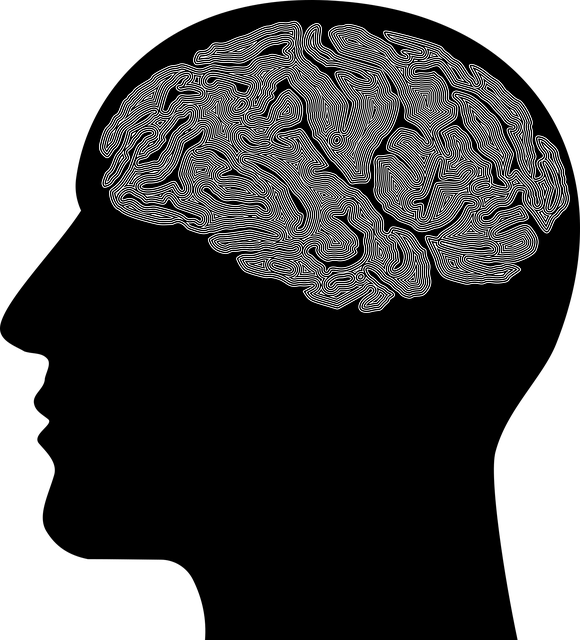Mental illness stigma significantly hinders well-being and recovery, leading to isolation, limited treatment access, and increased suicide risks. Organizations like Parker Christian Counseling Therapy stress the urgency of this issue. To combat stigma, public awareness campaigns, educational initiatives, burnout prevention for healthcare providers, and supportive environments are crucial. Parker Christian Counseling Therapy offers personalized therapy sessions focusing on empathy, public awareness, and stress reduction. Educational programs break down barriers through open conversations, inner strength development, and self-care routines, while advocacy groups create safe spaces for healing and empowerment. Accurate media representation normalizes mental health discussions and encourages professional help-seeking.
Mental illness stigma remains a significant barrier to seeking help, yet efforts to reduce it are gaining momentum. This article explores diverse strategies aimed at breaking down the walls of stigma and promoting understanding. From counseling therapies like Parker Christian Counseling Therapy, offering safe spaces for healing, to educational initiatives dispelling misconceptions, advocacy groups fostering community support, and media representations reshaping perspectives, each section highlights a crucial component in the ongoing fight against mental illness stigma.
- Understanding Stigma and Its Impact on Mental Health
- Parker Christian Counseling Therapy: A Safe Space for Healing
- Educational Initiatives to Dispel Misconceptions
- Advocacy and Support Groups: Building Community
- Media Representation and Its Role in Changing Perspectives
Understanding Stigma and Its Impact on Mental Health

Stigma surrounding mental illness can have profound effects on individuals’ well-being and recovery journeys. It often manifests as negative attitudes, stereotypes, or beliefs that discourage people from seeking help for their mental health concerns. This discrimination can lead to social isolation, reduced access to treatment, and an increased risk of suicide—a significant concern highlighted by organizations like Parker Christian Counseling Therapy.
Understanding the impact of stigma is a crucial step toward reduction efforts. Public Awareness Campaigns Development initiatives aim to educate society about mental illnesses, promote empathy, and dispel myths. Additionally, Burnout Prevention Strategies for Healthcare Providers emphasize the importance of compassionate care, ensuring professionals are equipped to offer effective support without succumbing to their own emotional healing processes.
Parker Christian Counseling Therapy: A Safe Space for Healing

Parker Christian Counseling Therapy stands as a beacon of hope and healing for many individuals grappling with mental health challenges. This counseling service offers a safe, supportive environment where people can openly discuss their struggles without fear of judgment. By prioritizing empathy and understanding, Parker Christian Counseling Therapy fosters a sense of belonging and encourages clients to embark on their journey towards recovery.
Through personalized therapy sessions, the team at Parker Christian Counseling Therapy employs effective strategies such as Public Awareness Campaigns Development, Empathy Building Strategies, and Stress Reduction Methods. These approaches not only help individuals manage their symptoms but also promote overall well-being. By creating a space free from stigma, they aim to revolutionize the way mental illness is perceived, ultimately leading to a more compassionate and inclusive society.
Educational Initiatives to Dispel Misconceptions

Educational initiatives play a pivotal role in reducing the stigma surrounding mental illness. Organizations like Parker Christian Counseling Therapy are at the forefront of these efforts, aiming to dispel misconceptions and foster understanding. Through workshops, seminars, and interactive programs, they empower individuals to recognize the signs of mental health struggles and offer support without judgment. By promoting open conversations about mental illness, these initiatives help build a community where people feel comfortable seeking help, just as they would for physical ailments.
Furthermore, educational efforts focus on Inner Strength Development and Resilience Building, teaching practical strategies for Self-Care Routine Development for Better Mental Health. These programs not only equip individuals with tools to manage their mental well-being but also encourage a culture of empathy and compassion, breaking down the barriers created by stigma.
Advocacy and Support Groups: Building Community

Advocacy and Support Groups play a pivotal role in the ongoing fight against mental illness stigma. These communities provide safe spaces where individuals struggling with various conditions can connect, share experiences, and offer mutual support. At Parker Christian Counseling Therapy, we recognize the power of collective action and the transformative impact these groups can have on fostering understanding and empathy within society.
By engaging in open dialogues, sharing personal stories, and participating in activities like Mindfulness Meditation, members cultivate a sense of belonging and build Resilience. These emotional healing processes not only empower individuals to manage their mental health more effectively but also contribute to the destigmatization effort by promoting awareness and challenging societal perceptions. Support groups serve as powerful catalysts for positive change, ensuring that those navigating mental illness feel supported, validated, and empowered to seek professional help when needed, such as through counseling services offered by Parker Christian Counseling Therapy.
Media Representation and Its Role in Changing Perspectives

Media representation plays a pivotal role in shaping societal perceptions about mental illness. With the power to influence millions, media platforms have a responsibility to portray individuals with mental health challenges accurately and empathetically. Through compelling narratives and diverse characterizations, they can help break down stereotypes and foster understanding. For instance, highlighting the journeys of people seeking counseling therapy, like that offered by Parker Christian Counseling, allows viewers to connect with real-life experiences, fostering empathy and reducing the stigma associated with seeking help.
By incorporating coping skills development and stress management techniques into these representations, media can further educate audiences on proactive mental wellness. Showcasing effective communication strategies and supportive relationships can also normalize conversations around mental health. This shift in perspective, encouraged by responsible media coverage, has the potential to create a more inclusive environment where individuals are encouraged to openly discuss their struggles and seek professional help, such as that provided by counseling therapies offered at Parker Christian Counseling Therapy.
Mental illness stigma reduction is a multifaceted approach, from creating safe spaces like Parker Christian Counseling Therapy to educating communities and shaping media narratives. By fostering understanding and empathy through initiatives that dispel misconceptions, we can build supportive communities that encourage healing. This collective effort not only improves mental health outcomes but also enriches our social landscape, making it more inclusive and compassionate for all.












